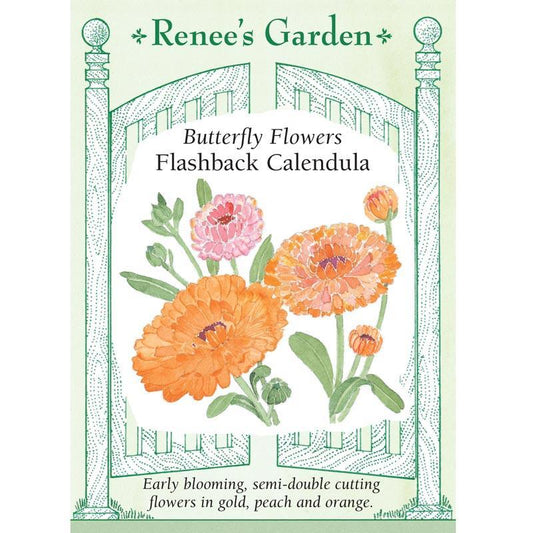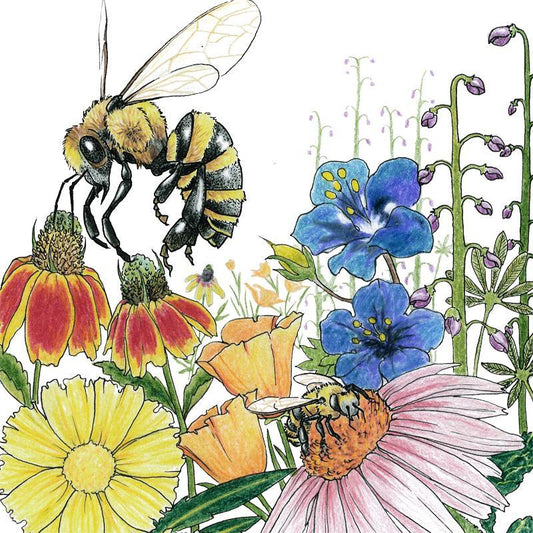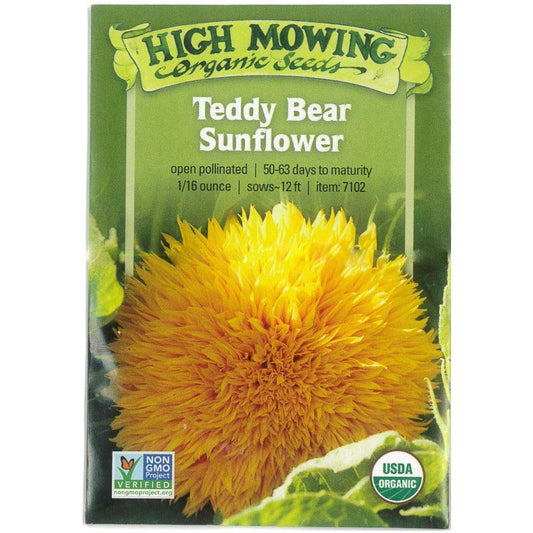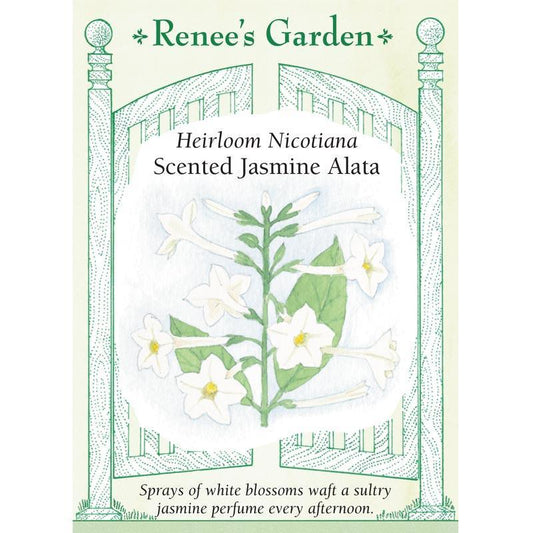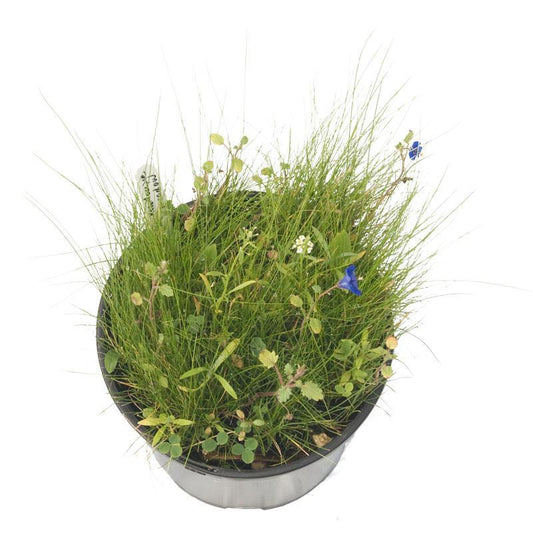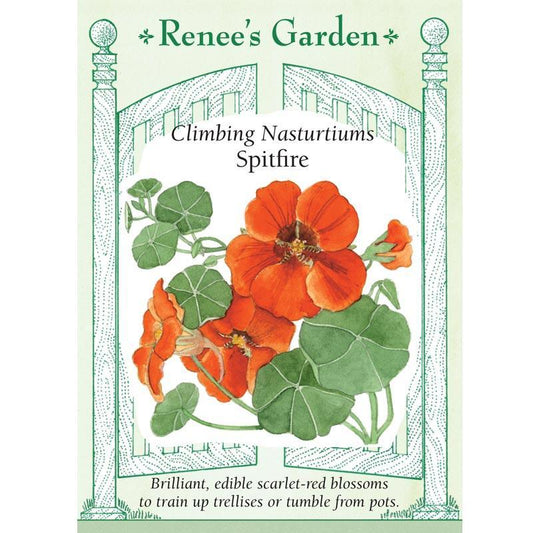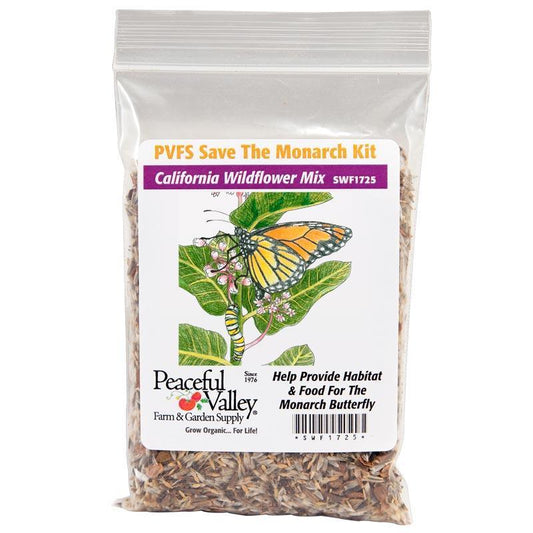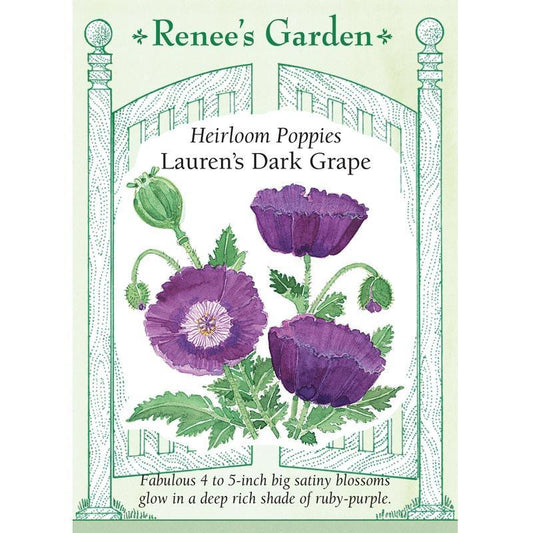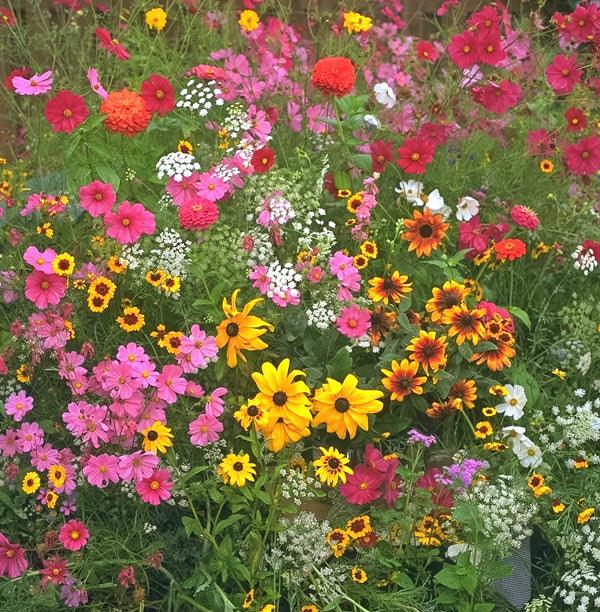Growing Flowers from Seed: A Comprehensive Guide to Organic and Non-GMO Flower Seeds
In the vibrant tapestry of a garden bathed in full sun, flowers – both non-GMO and GMO – weave a colorful narrative of nature's beauty. Flowers make gardens and vegetable patches look attractive, and with flower seed packets in hand, gardeners can plant with confidence, knowing they'll be rewarded with blooms that flourish under varying growing conditions. Open-pollinated flower seeds provide a reliable option for gardeners who value the resilience and diversity of their plants.
With an array of easy-to-grow options available, these flowers help attract beneficial insects, such as pollinators, to your garden, ensuring a healthy harvest in vegetable patches. Both edible flowers and ornamental varieties can thrive together, enhancing biodiversity and the beauty of your garden. Learn more about edible flowers and their role in your garden.
Non-GMO and Genetically modified plants grow side by side, adding to the charm and versatility of nature's bounty. Flowers have the remarkable ability to transform any garden into a vibrant and enchanting oasis. The vivid colors, delicate petals, and enticing fragrances they offer can elevate the aesthetics of your outdoor space. For those who love growing a garden with healthy, beautiful flowers, organic flower seeds are the best choice.
By choosing open-pollinated flower seeds, gardeners ensure the plants can naturally reproduce, preserving their unique characteristics and allowing for a sustainable and eco-friendly garden. Not only do these seeds provide beauty, but they also support beneficial insects, enriching the local ecosystem. Additionally, many gardeners seek free seeds for expanding their garden at no extra cost, making it an accessible option for anyone passionate about nurturing their green space.
Edible Flowers
Edible flowers add both beauty and flavor to gardens and meals. They are a fantastic way to enhance your garden with blooms that serve a dual purpose—decorative and culinary. Learn more about their uses and varieties in this video guide on edible flowers. If you are looking for specific options, check out this handy list of edible flowers to get started.
Non-GMO Flower Seeds
GMO, or genetically modified organism, seeds have undergone genetic alterations to introduce specific traits or characteristics. Non-GMO seeds also benefit flowers, in addition to their common association with food production for GMO crops. Non-GMO flower seed packets, as the name suggests, are free from any genetic changes. This means that the plants grown from these seeds will be in their natural, unaltered state.
Gardeners who prioritize a variety of species and environmental sustainability often opt for non-GMO flower seeds because they help preserve the genetic diversity of plant species. By choosing non-GMO seeds, you are participating in a movement to protect the integrity of our natural world. These seeds allow flowers to bloom in their natural beauty, without any genetic changes.
Home gardeners who choose non-GMO seeds are investing in quality seeds that promise beautiful blooms year after year. Whether you're using flower seed packets to grow vibrant flowers or choosing other seed packets for different plants, the result is a garden filled with unaltered, stunning beauty. With non-GMO seeds, you get to experience flowers in their most authentic and natural form, showcasing their true colors and characteristics.
Organic Flower Seeds
Farmers cultivate organic flower seeds using strict organic farming practices. Organic farming involves the use of natural fertilizers, organic soil amendments, and the avoidance of synthetic chemicals and pesticides. When you plant organic flower seeds, you are promoting a healthier ecosystem for your garden and the surrounding environment.
One of the key benefits of organic flower seeds is the reduction of synthetic pesticide residues in your garden. Harmful residues can hurt helpful bugs like bees and butterflies that help pollinate flowers. By choosing organic flower seeds, you are creating a haven for these essential pollinators.
Varieties of Flower Seeds
Now that we understand the importance of non-GMO and organic flower seeds let's delve into the world of flower varieties. When selecting flower seeds, you have a wide array of options to choose from, catering to your specific preferences and garden needs. Here are some key considerations:
Open-Pollinated Annual Flowers
Open-pollinated annual flowers are a popular choice among gardeners seeking vibrant, one-season blooms. These flowers complete their life cycle in a single year, offering a burst of color and beauty throughout the growing season. They are well-suited for creating dazzling displays in both flower beds and containers.
What sets open-pollinated annual flowers apart is their capacity for natural pollination. Unlike hybrids, which often require specific pollinators or controlled environments, open-pollinated flowers are pollinated by insects, birds, or the wind in an unrestricted manner. This natural process allows for the preservation of genetic diversity, ensuring that each generation of flowers retains its unique characteristics.
Some classic examples of open-pollinated annual flowers include the cheerful Marigold (Tagetes spp.), the elegant Cosmos (Cosmos bipinnatus), and the fragrant Sweet Alyssum (Lobularia maritima). These flowers are not only stunning but also serve as nectar sources for pollinators, enhancing the biodiversity of your garden.
Perennial Flowers for Year-Round Blooms
While open-pollinated annual flowers bring ephemeral bursts of color, perennial flowers are the stalwarts of any garden, returning year after year with their enduring beauty. They are known for their longevity and resilience, making them a cherished addition to gardens that seek continuous, season-to-season blooms.
Perennial flowers can be open-pollinated or hybrid, but when grown from open-pollinated seeds, they maintain their natural adaptability and genetic diversity. This makes them well-suited for ecological niches, supporting a wide range of pollinators and wildlife.
Some beloved perennial open-pollinated flowers include the vibrant Coneflower (Echinacea spp.), the graceful Black-Eyed Susan (Rudbeckia spp.), and the delicate Columbine (Aquilegia spp.). With the right care, these flowers can thrive for many years, offering enduring beauty and ecological benefits to your garden.
Selecting the Right Flower Seeds
When choosing organic flower seeds for your garden, consider your climate, soil type, and personal preferences. You can opt for single varieties if you have a specific favorite or explore regional mixes to ensure your garden is well-suited to local conditions. Additionally, consider mixes designed to attract pollinators and monarch butterflies, enhancing the ecological value of your garden. For flower seed planting, selecting non-GMO flower seeds ensures a natural, sustainable approach.
Choosing annual and perennial flowers, including options like comfrey seeds, provides a range of beautiful blooms. Seed selections that include deer-resistant flowers offer a colorful display that withstands wildlife browsing. These resilient blooms have consistent, season-long bloom times, providing a reliable source of cut flowers for indoor arrangements. Planted in raised beds with nutrient-rich soil, these flowers thrive, producing healthy foliage and abundant blossoms, offering both aesthetic beauty and practicality in any garden landscape.
Growing Flowers from Seed: Step by Step
Now that you've selected your non-GMO and organic flower seeds, let's explore the process of growing flowers from seed. With the right care and attention, you can transform these tiny seeds into a flourishing garden of beauty.
-
Choose the Right Time: Timing is crucial when it comes to planting flower seeds. Check the recommended planting times on the seed packets, as different flowers have different preferences. Some may require early spring sowing, while others thrive when planted in the fall.
-
Prepare the Soil: Ensure that your garden soil is well-drained and fertile. Incorporate organic matter like compost to improve soil structure and nutrient content. This provides a healthy foundation for your flowers to grow.
-
Sow the Seeds: Follow the instructions on the seed packet for the appropriate depth and spacing. In general, small seeds are sown close to the surface, while larger seeds are planted deeper. Water gently after sowing to settle the soil.
-
Provide Adequate Water: Keep the soil consistently moist but not waterlogged. Use a gentle spray to avoid displacing the seeds or damaging seedlings.
-
Monitor Growth: As your flowers grow, be vigilant for signs of pests or disease. Early detection and intervention can prevent problems from escalating.
-
Thin Seedlings: If you overcrowded your seedlings, thin them out to allow proper spacing. This ensures that each plant has sufficient room to grow and access to nutrients.
-
Fertilize as Needed: If your soil lacks nutrients, you may need to fertilize your flowers. Organic fertilizers are a great choice for maintaining the organic integrity of your garden.
-
Support Tall Plants: Some flowers, especially taller varieties, may benefit from staking or support to prevent them from bending or breaking in the wind.
-
Enjoy the Blooms: With patience and care, your flowers will reward you with a vibrant display of colors and fragrances. Don't forget to take the time to appreciate the beauty and biodiversity they bring to your garden.
Growing flowers from seed is a rewarding and fulfilling endeavor. By choosing non-GMO and organic flower seeds, you not only create a haven of natural beauty but also contribute to the preservation of our environment and the well-being of pollinators. Whether you opt for open-pollinated annual flowers for seasonal bursts of color or perennial varieties for enduring beauty, enjoy your time growing flowers from seed.
Why Buy Organic Flower Seeds and Non GMO Flower Seeds From Us?
At Peaceful Valley Farm & Garden Supply, we proudly offer a diverse selection of organic flower seeds and non GMO flower seeds, ideal for home gardeners across the USA. Our premium flower seed packets include heirloom varieties that thrive without synthetic chemicals, allowing you to grow vibrant, sustainable gardens filled with natural beauty. Whether you're looking to enhance biodiversity, attract pollinators, or simply enjoy a colorful bloom throughout the seasons, our seeds make it easy to cultivate a healthy garden. With great sale prices, fast shipping, and trusted quality, there's no better time to add organic flower seeds and non GMO flower seeds to your garden. Order today and share the joy of gardening naturally!
For more information on growing flower bulbs, see our growing guide in the Resource Center.


